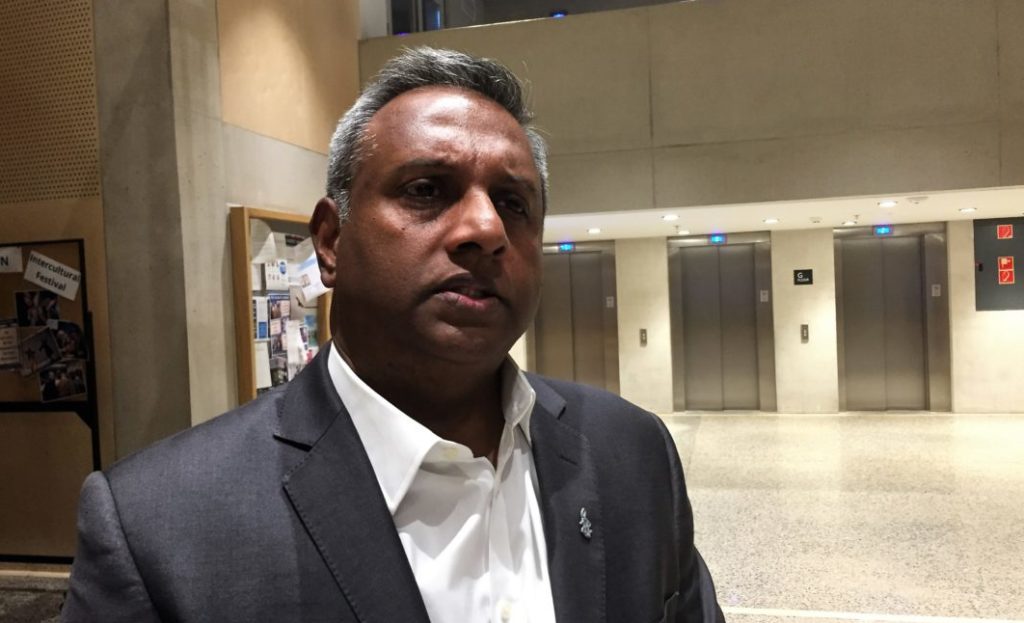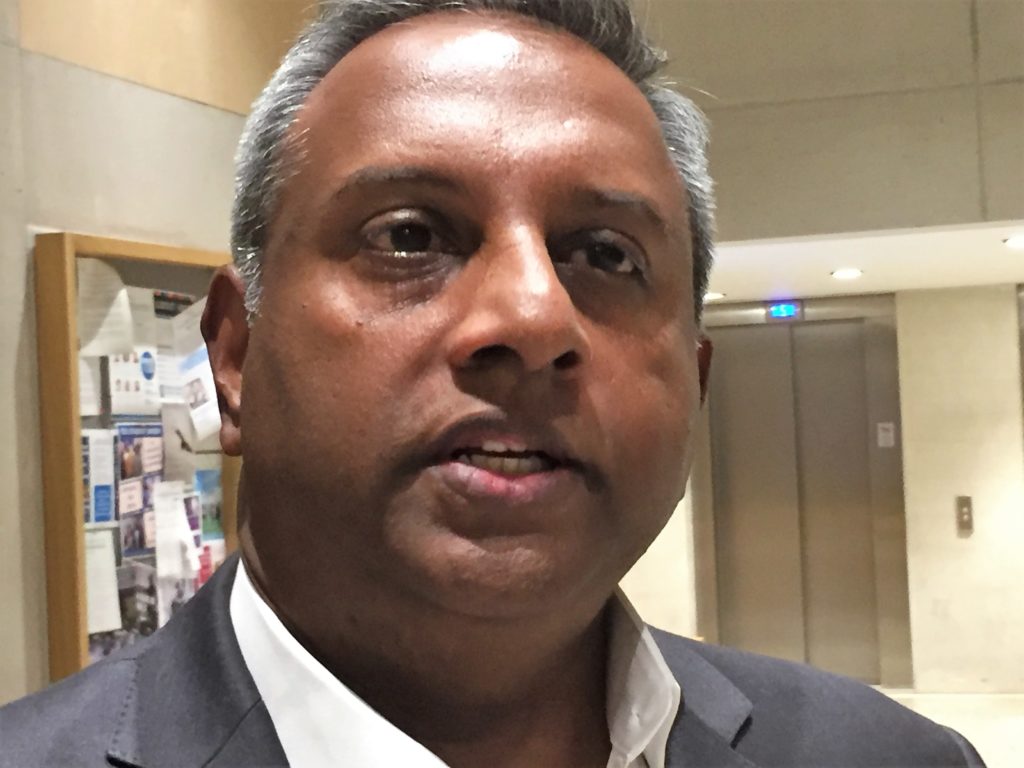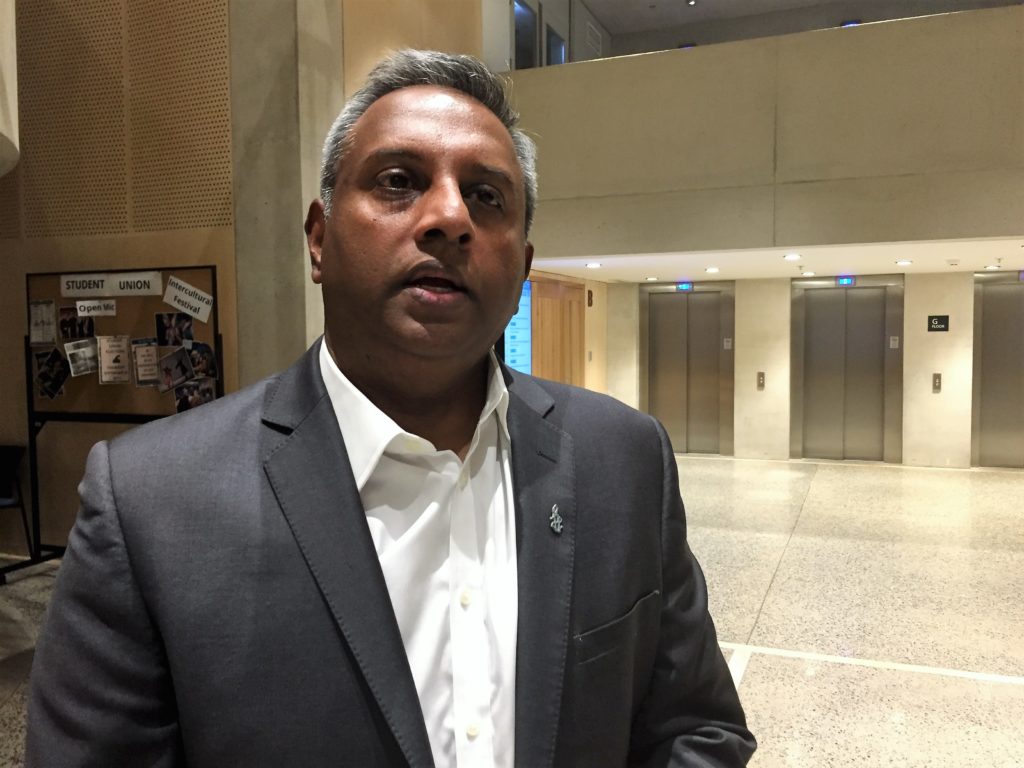The Hungarian government should be ashamed of its treatment of the refugees and not proud of it, says Salil Shetty, Secretary General of Amnesty International. In an interview with FüHü he says that the national consultation is part of the election campaign, the NGO-bill is not in line with international law, and human rights are in a free fall due to the politics of demonization. We also asked Salil Shetty whether he is a Soros-agent.
Hungarian version HERE

Amnesty International is mentioned in the so-called national consultation. What do you think about this?
This so-called national consultation sounds like a part of the government’s election campaign.
It’s not based on facts, it’s a fictional set of issues.
The reason why Amnesty International is listed there is that it is part of the government’s campaign to delegitimize any kind of independent voice, any kind of dissent, any kind of accountability mechanism on the government.
In the consultation Amnesty is mentioned as an organization that demanded the release of Ahmed H., who was accused of talking into a megaphone and throwing “solid objects” towards the police during the riots in Röszke. He was charged with terrorism, which Amnesty holds “unfounded and absurd”. The Syrian man was sentenced to 10 years, however, the second-degree court found the ruling unfounded and ordered a new trial.
So, I mean the trial of Ahmed H. from the very outset was not a fair trial, because even before the trial was completed, the government had been running an expensive campaign to prove that he was a terrorist. Even when the trial was in progress. It is a fragrant violation of all international standards. And as you know, it’s already been rejected by the court. The second round of the trial is about to begin in the end of October. It’s in that context that they have referred to Amnesty. We don’t take that seriously. I am very grateful to them for giving Amnesty a lot of publicity.
The government says that Amnesty International is one of the “pseudo-civilian organizations” of George Soros that try to implement the Soros-plan, and its representatives are his agents. Are you a Soros-agent?
(laughing) I am not sure what this Soros-plan is or what a Soros-agent is. The good thing about Amnesty is that we are a global movement of ordinary people who stand up for human rights everywhere. Over 95 per cent of our income comes from our members, activists. We have 7 million members and activists in the world, individuals who make small contributions.
We get some money from foundations and trusts, which includes Open Society Foundation, but this is a very small fraction, and it’s really not significant.
What do you think about the campaign against the NGOs in general?
This campaign had many steps. From 2014 onwards, Prime Minister Orbán has been attacking NGOs in many different ways. In 2014 it was about some Norwegian grants received by some NGOs. So, they came up with attacks, investigations. All of which, when taken to the court, was proved to be false.
More recently they have introduced the Lex NGO bill, which is styled after the Russian foreign agents bill. Of course we are challenging it, because it is against the right of privacy, against the freedom of associations. It is labelling organizations. We refuse to comply with that, along with 22 other NGOs we filed a complaint to the Constitutional Court.
It is not in line with international law. It is against all the fundamental principles Amnesty stands for.
So, we are going to fight that nationally and internationally.
In your last Annual Report you wrote that the situation of Hungary was among the most disappointing ones. Why do you think so?
If you look at the 1990s, the first decade after Hungary had come out of the iron curtain, until around 10 years ago, there was a lot of optimism around Hungary. The young people of Hungary were excelling everywhere in the world, there were so many success stories…


But what we have seen in the last Orbán-period is an attack on judiciary, the media, civil society. The worst manifestation of that was of course the attack against Muslims and migrants.
It is not only disappointing, it is shameful. A country that does not respect the rights of the most vulnerable people in the world should be shameful of itself. Well, it’s not really the country, because I want to separate the people of Hungary from this regime that is creating this image of Hungary.
Instead of being ashamed of what they are doing, they are going around saying that they are so proud
that they have kept the refugees away. The Hungarian government should at least be saying: we are so sorry that we are not able to meet the rights and obligations towards the most vulnerable people.
The report was about 2016, several months have passed since then. How did the situation change? For better or worse?
In all these counts, the attack on civil society, the treatment of the refugees, the attack on any kind of free speech or dissent, I would say it’s got worse.
In the case of the refugees, well, there are almost no refugees coming in any more. There is nobody for them to prosecute any more… But the people out there in those container camps are suffering. The number of people, whose application for asylum is processed, is negligible. We are talking about 2500 in the first six months. They have nobody to push back, because they are not letting anybody in. It is certainly not better for the people who are seeking asylum.


You mentioned free speech: what do you think about press freedom in Hungary?
Any press entity, which is trying to have an independent voice and which is critical of the government, as far as I am aware, doesn’t have much room to function. And they will use every possible avenue to make sure that any kind of criticism is not being allowed to surface.
It’s not different from the NGO-story.
Anybody who is critical and holding the government to account is silenced, using one method or another.
Populism is spreading now in the world, why do you think it is a problem?
It is a problem more broadly for how societies develop and operate, for the future of democracies. But for Amnesty it is a problem for its consequence on human rights.
While of course one can talk about Duterte and Erdogan, the fact is that Hungary is a Western European country. It is at the heart of Europe. You cannot compare it to the Philippines or Russia.
Instead of populism we call it the politics of demonization, when you identify a group of people, like the refugees or the Roma, and make them a scapegoat, you attack them and you deflect the attention from what needs to be done in the country, and you muzzle anybody who doesn’t agree with you.
The consequence of the politics of demonization is that human rights are in a free fall.
Whether it comes to the freedom of association, to the freedom of speech, expression, all of these are either under threat or attack.


























